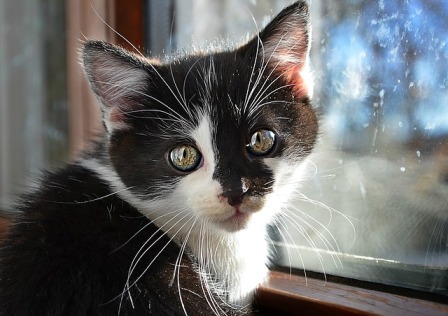Cats Can Catch Fleas and Parasites, Even in Winter
Cats Can Catch Fleas and Parasites, Even in Winter
Many cat owners think that cats do not need to be protected against fleas and parasites during winter months. According to statistics, the sale of products that protect cats from fleas, ticks and worms reduces for about 20 percent. However, fleas and different types of worms are amazingly resistant and can survive the cold weather. In the artificial environment and central heating rooms, they simply blossom. Even indoor cats can catch fleas and parasites because eggs and larvae can reach our home through shoes, infected animal, or plants that were outside in the summer. Humid weather and warm air make an ideal combination for fleas to grow. They are especially problematic because they can transmit Dipylidium caninum or tapeworms, one of the most known parasites in cats. If a cat eats an infected flea, it can become lethargic, deprived of nutrients and can lose weight. To protect the cat from fleas and parasites, we need to treat it even in winter. The article “Acres Mill Veterinary Clinic Warns Cold Weather Not Sufficient Heartworm Prevention” explains what the risks are if we left the cat unprotected during the coldest period of the year.
Cats Can Catch Fleas and Parasites, Even in Winter
In winter many pet owners stop their heartworm prevention, but Acres Mill Veterinary Clinic doctors, including Dr. Michael Good warns that this could put pet health at risk.
Heartworm is spread when an infected mosquito bites a dog or cat, depositing baby heartworms into the bloodstream. Over the next six months, if not addressed, those smaller heartworms will grow into adults. Adult heartworms are approximately the size of spaghetti and live in the blood vessels in the lungs and heart, where they can seriously damage those organs. Eventually, without treatment, heartworm can be fatal.
“It’s understandable that pet owners only think of heartworm prevention in the summer,” said Dr. Michael Good. “Heartworm is spread by mosquitoes, and we humans are bothered by mosquitoes most often in the warmer months. Yet mosquitoes can get access to pets year-round, and pets that are not on prevention are at risk. This risk is especially high for cats, who do not have an effective heartworm cure if they are infected.”
However, protecting the cat only is not enough. According to feline experts, we need also to treat the cat’s environment, because fleas under central heating will spread easily and rapidly. All carpets, furniture, beds, and sheets, where an infected cat lies, have to be hoovered and treated with insecticide, prescribing for homeowners use. Keeping a good hygiene during the winter months can reduce and minimize the risk of spreading pests. If regular cleaning and insecticide treatment do not show desired results, then we need to call a professional who can apply insecticides of higher concentration. In this way, we will provide a safe environment for our cat and a good care during the winter.










